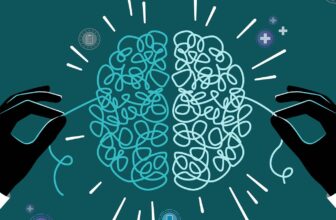What is the Relationship Between Psychology and Biological Sciences?
Psychology and the Biological Sciences:
The biological sciences study the structure of the body, the body organs and their functioning. Psychology studies behavior. The behavior of an individual has a very close relationship with the body. The sensations, perceptions, and all forms of behavior begin at the physiological level and then result in muscular actions or glandular secretions.
The brain has a very important role to play in coordinating and organizing the functions of the different organs of the body. The complete nervous system has a big role to play in behavior. There is, thus, a very close relationship between psychology and neurology, neuro physiology, neuro chemistry and other sciences which deal with the nervous system, and more so the brain.
Genetics is another branch of biology which studies the nature of inheritance of different qualities. It has an important role to play in determining behavior.
Species change via a process of natural selection, Charles Darwin. In selective breeding, characteristics of one generation are passed on to the next generation through the genes. Genes determine the differences in intelligence, personality and mental disorders in individuals (Eysenck, 2004). Evolutionary Psychology is an upcoming field of psychology that explains behavior and the development of the mind in terms of their function and capacity to adapt to situations.
Many of the above ideas are included in behavioral genetics, a new theoretical approach. This approach tries to analyze causes of behavior which makes use of the degree of relatedness among different relatives to evaluate the role of genetic factors.
Focus on four main questions:
- Why is the mind designed the way it is?
- How is the human mind designed? its mechanisms, components, and their organization?
- What are the functions of the components parts and their organized structure, what does the mind do?
- How the human mind and current environment, particularly social environment interact to influence behavior?
David Carey opined that this definition of evolutionary psychology was too broad and applicable to most psychological approaches.
The following are Pinker’s views on the historical origins of evolutionary psychology (1997). Two scientific revolutions are included in evolutionary psychology:
- Cognitive revolution of the 1950s and 1960s. It explains the mechanics of thought and emotion in terms of information and computation.
- Revolution of evolutionary biology of 1960s and 1970s. It explains the complex adaptive design of living things which depends on the selection of the reproducing animals.
In the process of evolution, all animal species have adapted to the environment structurally and behaviorally. The behaviors of all animals area result of their adaption to their environment. In the process the brains have developed in such a manner that certain associations and responses are learned easily. Some species learn some behaviors very easily, these are known as prepared behaviors.
Certain behaviors cannot be learnt at all these are called contra prepared behaviors. Thirdly, unprepared behaviors are those That can be acquired, but only when learning procedures are used.
Researches in health psychology and clinical psychology have shown that a person’s psychology affects the physiological and biological processes. We have heard of the Placebo effect. It refers to the condition in which a person feels he is getting better because he is taking a medicine and so his behavior changes.
A placebo is in fact a fake pill or an injection. Sugar Pills and Saline water injections are common placebos. Moerman (2002) feels that these things have an impact not because of actual reaction as in Chemistry but due to suggestion our mind gives us. Saline injections are found to be 70 % as effective as a painkiller drug (Kirsch and Lynn). Doctors sometimes prescribe placebos as they are found effective in pain, anxiety, depression, alertness, tension, sexual arousal, alcohol craving, among so many problems.
There are many ways, other than medicine, according to research, to relax people under stress, one of which is meditation. There can be many ways of meditation, listening to music, taking walks; enjoying hobbies; in fact, anything that helps to stop upsetting thoughts and increase relaxation reduce stress. Vipassana (Buddhist technique) meditation is very useful to reduce or help tolerate the pain.
In progressive relaxation, we relax the body completely by proding deep relaxation in all body parts, one by one. This is a systematic technique of relaxing the body. Another technique known as guided imagery can also be used. In this method, an individual is asked to lay on the ground in a relaxed position with eyes closed and he is asked to imagine a beautiful picture or a scenery or a garden full of flowers or any similar visual imagine that produce relaxation.
It has been proven by research that 94% of diseases, such as asthma, ulcers and even cancers, have psychological origin. These diseases are known as psychosomatic diseases. These can be cured with the help of psychology. Research has also shown that a positive attitude and thinking help patients to recover speedily.
This shows that psychological knowledge of perception, thinking, motivation, etc., can be used by professionals like doctors, psychiatrist and counselors.



